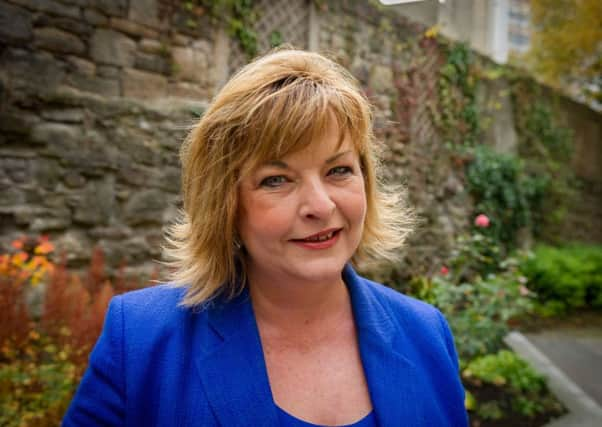Leaders: Hyslop's message about arts funding is muddled


Arts have the power to change lives and communities, enhancing the everyday and letting us experience the shock of the new.
During a recession this respite from the daily grind is especially welcome. The arts, whether theatre, dance or music, or any other genre, enhance the spirit, and are a way of giving young people a glimpse of a world they might never know existed.
Advertisement
Hide AdAdvertisement
Hide AdBut culture minister Fiona Hyslop has been accused of making a hypocritical speech about the importance of guarding funding for the arts, indeed some would say she was guilty of displaying double standards.
In her impassioned speech at Glasgow’s Platform arts centre in Easterhouse, a new venue which includes a 200-seat auditorium, a studio theatre as well as a range of classes, Ms Hyslop’s focus was on future generations when she announced that she wanted Scotland to become a “world leader in youth arts” and provide opportunities for young people not only to enjoy the arts and theatre and “build a better future”.
“Participation in arts and culture can help young people realise their ambitions,” she said. “This can have huge benefits, and must be a priority, even in difficult financial times. At a time of continuing restraint in public finances it is very important that government continues to recognise the valuable role of the arts.”
Stirring stuff indeed, unless you are an aficionado of the small print of arts funding or know people who are involved in the sector. If so, you would be aware that a few months ago the Scottish Government outlined £16 million worth of cuts to the arts sector.
To be fair, until this year Ms Hyslop had managed to protect the culture budget. It is her job to talk up the arts and proudly focus on Scottish triumphs.
But this does not negate the fact that the arts world in Scotland has suffered cuts such as the 3.8 per cent off Creative Scotland’s budget to the 3 per cent reduced funding for the National Theatre of Scotland and Scottish Opera – both of whom take their performances out into Scotland’s deprived communities and to remote areas away from the cities.
Ms Hyslop’s message to Scotland’s councils that “there have been cuts, but do not make further cuts as we rate the arts highly” rather overlooks the fact that her government holds some responsibility for leaving those councils cash-strapped with the nine-year freeze on council tax, forcing them to reduce staffing and opening hours to many amenities.
Advertisement
Hide AdAdvertisement
Hide AdFurthermore, finance minister John Swinney’s determination to push through his desired budget means that the local authorities have no alternative but to reduce spending in certain areas.
If you are asking councils to make the necessary cuts to deliver on-budget spending then those administrations have to be left to get on with that difficult task, which will require unpleasant decisions to be taken. And that might mean an arts budget has to be reduced to pay for a resource in education. It’s unpalatable, but there might be no other option.
Women must not be disadvantaged
Police Scotland’s announcement that it is to look again at how its staff on pregnancy and maternity leave are treated and issue and new guidance, has an all too familiar ring about which will resonate with employees across many
sectors.
Female staff are saying they are being treated less favourably than their male counterparts and if not addressed the situation could lead to a number of employment tribunals with the potential for damaging and negative publicity as well as financial payouts.
Having children remains a disadvantage to many women who seek a successful career.
But the issue is not just about pregnancy and maternity leave. It is also about the support we give - or do not give - mothers when they return to work.
Children have to be cared for, and mothers must be able to leave their work duties to fulfil their roles as parents without feeling guilty about leaving when others around them are putting in extra hours at the office.
Advertisement
Hide AdAdvertisement
Hide AdAt the same time, employers have to discard the mind-set that one person is more committed to the role than the other because they have “put in the hours”.
Women are also “putting in the hours” caring for the future generation who in turn will work in roles such as doctors and engineers, paying taxes to look after the needs of the ageing population.
It is a problem in all lines of work, and is by no means a police issue. Police Scotland is to be commended for taking action on its procedures after a report identified serious shortcomings. Others should consider if their own policies in this area - and attitudes - are fit
for 2016.